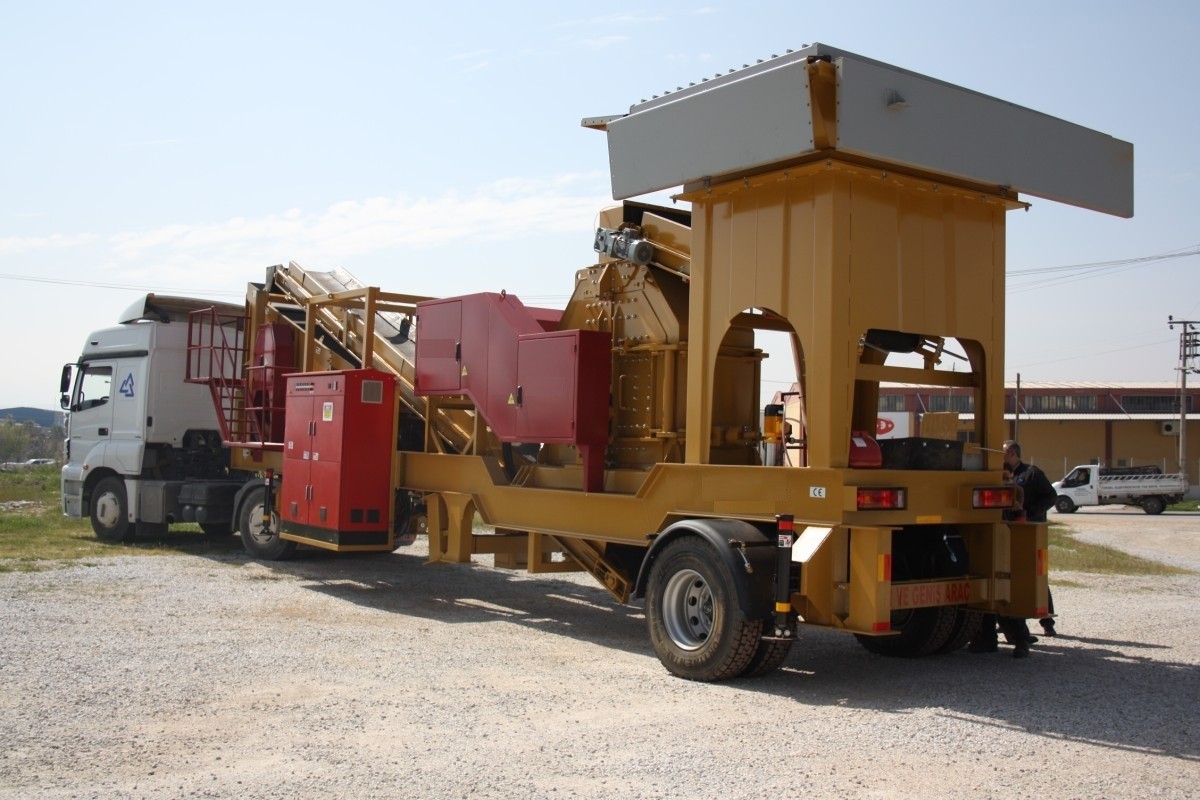Crushing and screening plants for stones and minerals are crucial for industries such as construction, infrastructure projects, and mining. Purchasing these plants involves significant investment and strategic decision-making. During the purchasing process, factors like production efficiency, operational cost-effectiveness, and future growth potential should be considered. In this article, we will discuss the primary factors to be taken into account when buying crushing and screening plants.
1. Efficiency and Capacity of the Plant
The efficiency of a crushing and screening plant is directly related to its production capacity. It is crucial to ensure that the plant can meet current and future production demands. The following elements should be considered:
-
Capacity: The plant's production capacity and whether it can meet market demand.
-
Efficiency: How effectively the production lines are running and whether breakdowns are frequent.
-
Energy Consumption: Energy efficiency will significantly affect long-term operational costs.
-
Spare Parts and Maintenance Requirements: The ease of obtaining spare parts and the efficiency of the maintenance process.
2. Technological Infrastructure and Innovation
Modern crushing and screening plants operate with high-tech machinery. Therefore, the technological infrastructure of the plant plays a vital role in speeding up production and enhancing efficiency. A plant equipped with the latest technologies can greatly improve production processes.
-
Automation: A high level of automation reduces human error and increases production speed.
-
Digitization: The ability to digitally monitor production processes can improve efficiency and quickly identify issues.
-
Machine Innovation: Outdated machinery may hinder production efficiency and increase maintenance costs.
3. Cost Analysis and Financial Condition
Conducting a cost analysis is critical when purchasing a plant as it affects long-term profitability. This analysis should include not only the purchase price but also operational and maintenance costs.
-
Purchase Cost: The price of the plant is a significant factor affecting the return on investment.
-
Operating Costs: Operational costs such as energy consumption, labor, and maintenance, alongside production efficiency, should be considered.
-
Profit Margin: The plant's profit margin will determine its long-term sustainability.
4. Market Research and Sales Potential
After the plant is purchased, the sales potential of the produced stone and mineral products becomes crucial. Conducting market research to analyze the demand for these products is necessary.
-
Target Market: The specific market segments the products will cater to and the construction projects where they will be used.
-
Sales Network: Distribution channels and customer relationship strategies.
-
Competition: How the plant's products compare with competitors in terms of price/performance ratio.
5. Environmental and Legal Factors
Crushing and screening plants can have environmental impacts. Therefore, it is important that the plant is environmentally friendly and compliant with legal regulations.
-
Eco-friendly Production: The use of environmentally friendly technologies can help the plant comply with future regulations.
-
Legal Compliance: Ensuring that the plant's operations are in accordance with local and national laws, including permits and licenses.
6. Labor Force and Training
The success of a crushing and screening plant depends on a qualified workforce. The training level and motivation of employees directly impact the plant's performance.
-
Training: Ensuring that employees are trained to operate machinery correctly.
-
Labor Force: Hiring experienced personnel and maximizing employee efficiency.
7. Technical Support and Service
The technical support and service offered for the plant are key to ensuring its longevity and productivity. Access to spare parts, maintenance, and repair services is essential for protecting the investment.
-
Vendor Support: The quality of the warranty, technical support, and spare parts provided by the vendor.
-
Long-term Service Agreements: Service contracts covering the maintenance and repair of machinery.
8. Future Development Potential
The future development potential of the plant should be considered as part of long-term investment strategies. This includes opportunities for plant expansion, product development, and technology integration.
-
Technological Advancement: Integrating new technologies into the plant's production capacity.
-
Market Expansion: Potential to enter new markets.
 English
English
 Le français
Le français
 Türkçe
Türkçe

